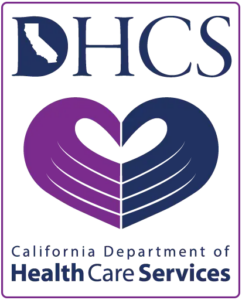Methamphetamine addiction is a significant issue affecting countless individuals and families in Huntington Beach and the surrounding area. Recognizing the signs of addiction and understanding the treatment options available can be crucial for recovery. For those ready to take the first step toward healing, a reputable detoxification center in Huntington Beach, CA can provide the medical support and supervision necessary to safely manage withdrawal symptoms. Beginning treatment at a trusted facility sets the stage for long-term recovery and ongoing care.

Meth addiction is a complex and chronic disease that affects millions of people worldwide. It is characterized by the compulsive use of methamphetamines, often leading to negative consequences in a person’s life. Meth addiction can lead to significant physical, emotional, and social problems, including health issues, relationship problems, and financial difficulties.
Behavioral signs of meth abuse may include:
- Increased energy and talkativeness
- Decreased appetite, leading to significant weight loss
- Insomnia or other sleep disturbances
- Changes in social circles, often isolating from former friends and family
- Secretive behavior and withdrawal from previously enjoyed activities
Physical symptoms can also be telling. These may include:
- Pale skin and poor hygiene
- Dental problems, often referred to as “meth mouth”
- Skin sores from picking
- Severe mood swings and irritability
The psychological effects of meth abuse can be profound, leading to paranoia, hallucinations, and even violent behavior in some cases. This can create a volatile environment not only for the user but also for those around them, further complicating the dynamics of relationships. In addition to the immediate physical and behavioral symptoms, long-term meth use can result in severe health complications. Chronic users may experience cardiovascular issues, including increased heart rate and risk of heart attack, as well as neurological damage that can affect cognitive functions and emotional regulation.

What to Expect in Meth Rehab
Typically, rehab consists of a few phases:
Initial Assessment
This stage involves a comprehensive evaluation of the individual’s substance use, mental health, and physical health. A personalized treatment plan is developed based on this assessment.Detox
Medical detoxification is a critical first step. Medical supervision ensures safety during withdrawal from methamphetamine, where individuals may experience meth withdrawal symptoms such as fatigue, depression, and intense cravings.Therapeutic Interventions
Behavioral therapies, such as cognitive-behavioral therapy (CBT), are employed to address the psychological aspects of addiction. Group therapy and individual counseling can also play a significant role.Aftercare Planning
Successful rehab programs develop aftercare plans, which may include outpatient therapy, support groups, or sober living arrangements.Family involvement is often encouraged during rehab. Family therapy sessions can help mend relationships strained by addiction and educate loved ones about the recovery process. This support system is crucial as it not only aids in the individual’s healing but also empowers family members to understand their roles in the recovery journey, creating a more supportive environment for lasting change.
Detox from Methamphetamines
The detox process generally involves the following:
- Medical Supervision: Health professionals monitor the patient’s condition, providing medications to relieve (sometimes intense) withdrawal symptoms and ensuring the individual’s safety throughout the process.
- Emotional Support: Support from counselors and therapists helps individuals manage cravings, anxiety, and any emotional distress that arises during detox.
- Nutrition and Rest: Proper nourishment and sufficient rest are emphasized during detox, as these factors contribute significantly to both physical recovery and mental clarity.
It’s important to note that detox is not a standalone solution. It must be followed by comprehensive rehabilitation efforts that address the underlying psychological triggers and provide coping strategies to maintain sobriety.
During detox, individuals may also experience a range of psychological symptoms, such as intense mood swings and irritability. These symptoms can be exacerbated by the brain’s adjustment to the absence of methamphetamines. Therefore, therapeutic interventions, including cognitive-behavioral therapy (CBT) and group therapy, are often integrated into the detox process to help individuals understand their addiction and develop healthier coping mechanisms.
Residential Treatment for Meth Addiction
Key benefits of residential treatment include:
- Structured Environment: A residential setting minimizes distractions and temptations, enabling individuals to immerse themselves in the recovery process.
- Comprehensive Care: Access to medical and psychological care ensures that all aspects of the individual’s health are addressed.
- Community Support: Living alongside peers who are experiencing similar struggles fosters connection and understanding, which can be beneficial during recovery.
Residential treatment often includes various programs and activities designed to rebuild life skills, create healthy routines, and instill hope for the future. These experiences are instrumental in re-establishing a balanced life post-addiction.
Get Meth Addiction Treatment in Huntington Beach
Choosing to seek help is a courageous first step toward recovery. If you are ready to reclaim your life, reaching out to a meth addiction treatment facility can set you on a path to healing and future success. Contact us today to learn more.
Learn about structured treatment models for methamphetamine and other stimulant use disorders in SAMHSA’s Treatment of Stimulant Use Disorders guide.
Surf City Detox Accepts Insurance
We accept many insurance plans to help cover the cost of addiction treatment. Contact your provider to get more information or call our office to reach an intake specialist.


















